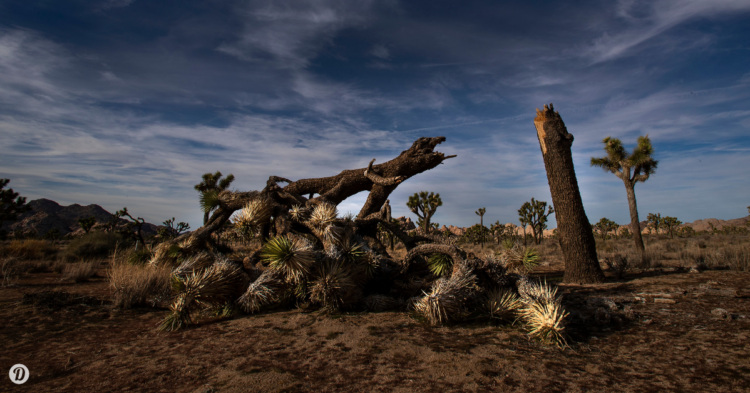The partial shutdown of the federal government has affected 800,000 workers, and it’s all trickling down into other areas. Air travel is becoming less safe as TSA screeners go unpaid and have begun calling in sick , and we’d all feel better if air traffic controllers didn’t have worries about their mortgage payments distracting them.
Official websites are also in jeopardy as security certificates go un-renewed, including the one for the Department of Justice, and the Department of Homeland Security’s cyber-security division is operating with a skeleton crew, according to the BBC .
That’s just the tip of the iceberg. America’s national parks have also suffered particularly badly.
Joshua Tree National Park might become something of a metaphor for the shutdown in general.

One of America’s jewels has been left tarnished by the shutdown, with people using the park basically trashing it. The park hasn’t closed for the shutdown, but visitor services aren’t being provided.
No visitor services means nobody doing things like emptying trash cans and cleaning the bathrooms, and no entry fees, either.

Kind patrons of the park have done their best to clean up what they can, but there’s only so much they can do given the tide of visitors taking advantage.
So Joshua Tree, along with many other parks, have been forced to close campgrounds over the sanitation conditions.
Moreover, a mere eight park rangers are on duty during the shutdown, covering an area the size of Delaware.

With virtually no oversight, some terrible humans have been taking advantage.
The staff shortage has created a feeling of “lawlessness,” Kristen Brengel, the vice president of government affairs for the National Parks Conservation Association, told CNN .
“People are bringing in dogs and drones, and there are instances where people aren’t following the rules, and it is not good for the wildlife and the environment,” she said.

The activities of folks taking advantage of that lawlessness is doing far more damage than any volunteer groups can possibly make up for.
Joshua Tree’s iconic, namesake trees have been hard hit, with pics of the trees damaged and even cut down going around.

They’re not just being damaged by accident, either. People are purposefully chopping them down and taking chainsaws to them.
For all those who are unaware, Joshua trees are unique to the United States.

They grow only in the Southwest, largely in the Mojave Desert, and they’re slow-growing, taking about 60 years to reach maturity.
They can only pollinate with the help of a particular moth, the Yucca moth, and they’re pretty easy to damage even without a chainsaw.
Despite the closure of campgrounds, people have been camping wherever they want anyway.

They’ve been driving into restricted areas, cutting chains and locks and, yes, chopping down Joshua trees to skirt gates, making new roads out of “pristine desert,” as Joshua Tree National Park Superintendent David Smith told National Parks Traveler.
And people have even tagged some of the natural features with graffiti.

For what reason, we can’t even imagine. But at regular staffing levels, more than 100 sets of eyes would be on hand at any time to protect the grounds.
Eight rangers just can’t cut it, and folks know it.
Rand Abbott, a rock climber who is paraplegic, is one of the volunteers trying to help the park out.
He told the Los Angeles Times that he forked out $5,000 and drove more than 700 miles to clean toilets and empty garbage cans from his wheelchair.
In his efforts, he’s encountered some appalling behavior.
One person he saw had illegally parked a pickup truck and a trailer in an area known to host bighorn sheep

“That guy was casually brushing teeth when I pointed out that he’d run over and crushed creosote and cactus,” he said. “He just flipped me off.”
Smith had announced to a closure of the park altogether to protect the wilderness, but he was overruled by federal officials.

Instead, they’re going to use funds from Federal Lands and Recreation Enhancement to finance more law enforcement and cleanup, even as the parks continue to charge no fees for admittance.
















































